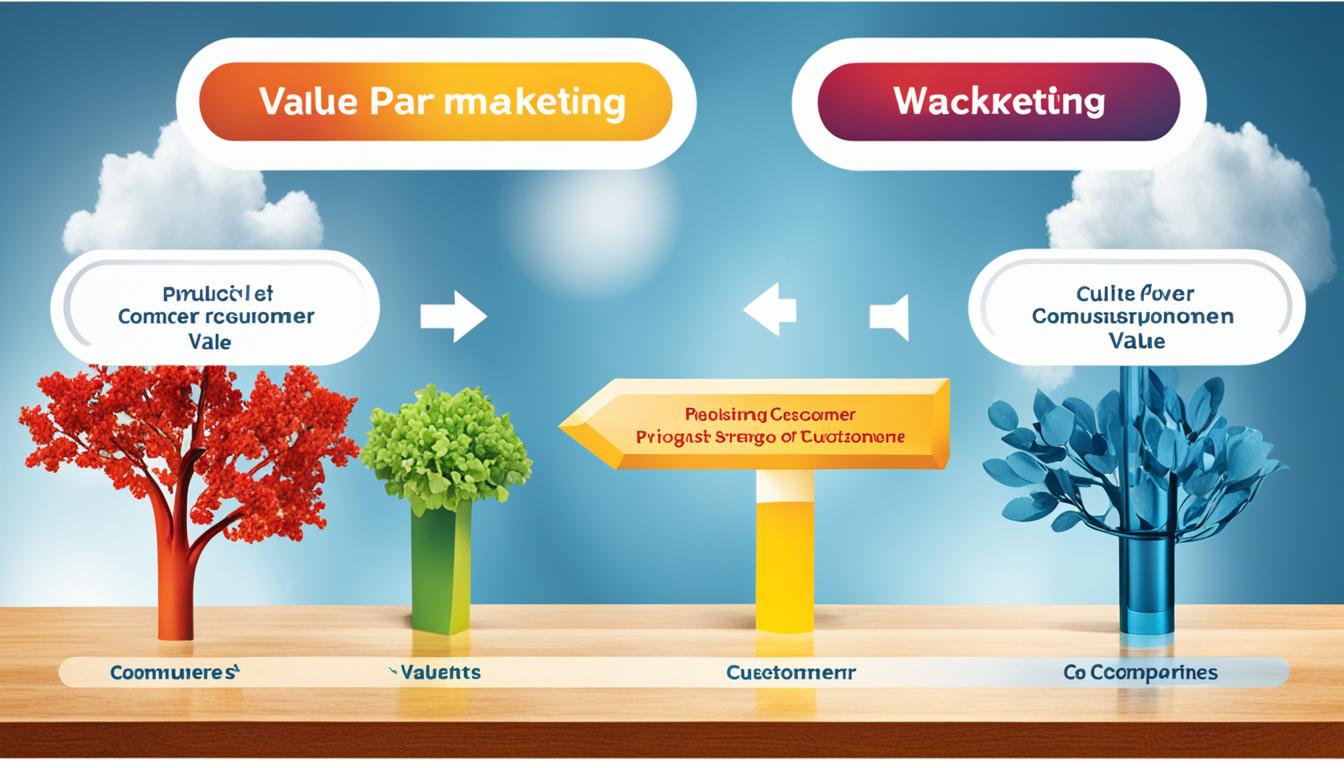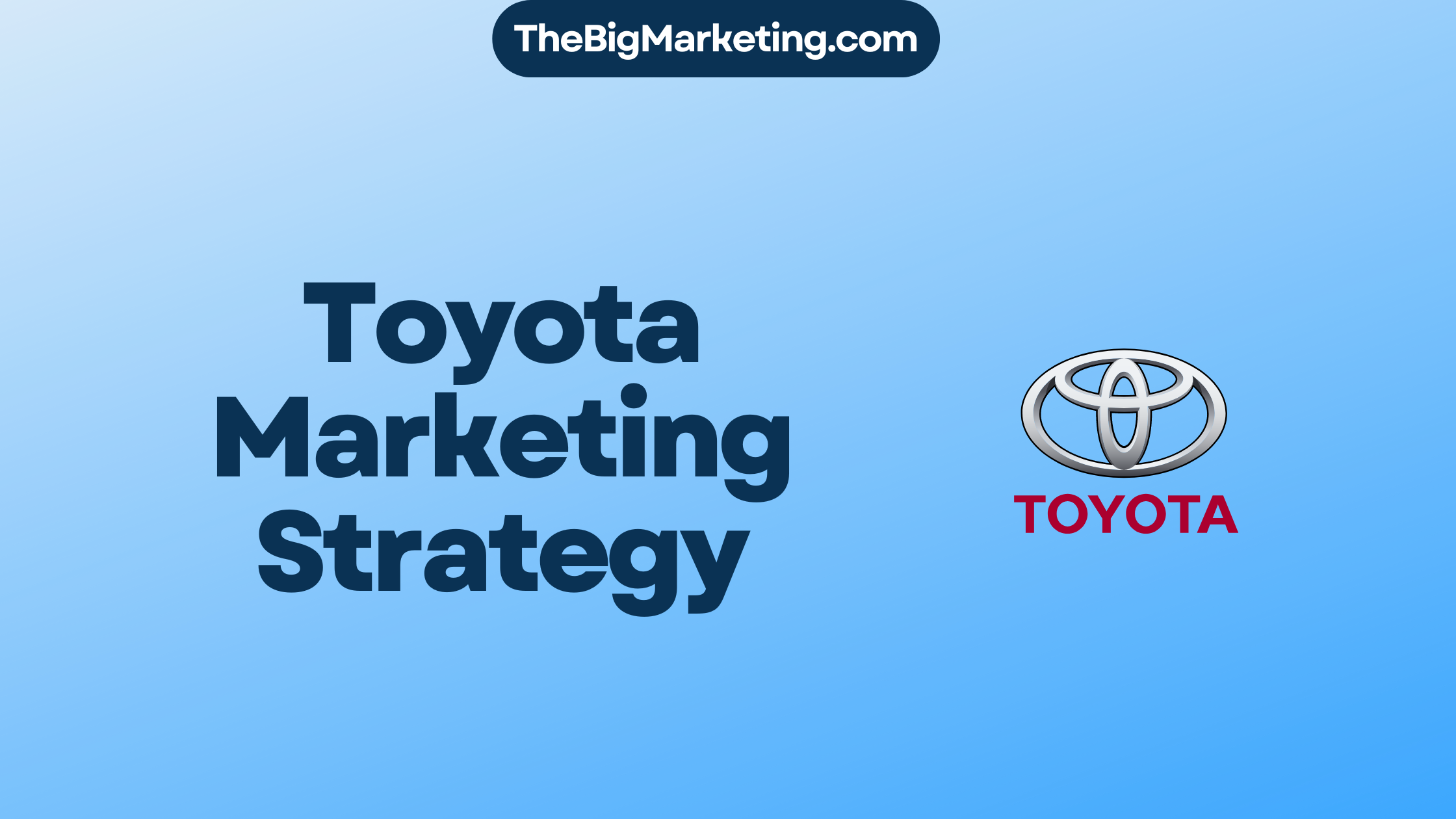Are you considering a career in marketing and wondering about the different job titles and career paths available to you? Look no further! In this complete guide, we will delve into the distinctions between marketing associates and specialists, shedding light on their key responsibilities, required skills, and career progression opportunities.
Key Takeaways:
- Marketing associates and specialists are two distinct roles within the marketing field.
- Marketing associates handle administrative tasks and provide support to marketing teams.
- Marketing specialists specialize in specific areas of marketing and have more seniority in their roles.
- Both roles require specific skills and qualifications, such as a background in marketing and communication skills.
- Career progression opportunities exist for both marketing associates and specialists, with the potential to advance to higher-level positions.
What is a Marketing Associate?
Marketing associates are entry-level professionals who support marketing teams by handling administrative duties and performing operational tasks. They assist marketing managers in various ways, such as producing marketing materials, planning events, and gathering data for reports.
The responsibilities of marketing associates include:
- Supporting marketing campaigns
- Keeping managers updated on the progress
- Serving as a point of contact for customers
- Assisting in event planning
- Conducting market research
- Helping with social media management
To become a marketing associate, candidates typically need:
- A background in marketing or related fields
- Prior experience in marketing roles
- Skills in content production and data analysis
Responsibilities of a Marketing Associate
Marketing associates play a crucial role in supporting marketing campaigns and assisting marketing managers. Some of their key responsibilities include:
- Producing marketing materials: Marketing associates collaborate with the creative team to create compelling marketing materials such as brochures, flyers, and digital content.
- Planning events: They assist in organizing and coordinating marketing events, such as product launches, trade shows, and promotional activities.
- Gathering data for reports: Marketing associates collect and analyze data from various sources to generate reports and provide insights into campaign performance and audience engagement.
Qualifications for a Marketing Associate
To succeed as a marketing associate, candidates should possess the following qualifications:
- A background in marketing or related fields: A degree or diploma in marketing, business administration, or a related field provides a strong foundation for a marketing associate role.
- Prior experience in marketing roles: Previous experience in entry-level marketing positions, internships, or relevant projects allows candidates to develop the necessary skills and understanding of marketing strategies.
- Skills in content production and data analysis: Strong written and verbal communication skills, along with the ability to create engaging content and analyze marketing data, are essential for effective marketing associate performance.
By possessing these qualifications, marketing associates can contribute to the success of marketing campaigns and gain valuable experience in preparation for future career growth.
What is a Marketing Specialist?
Marketing specialists are professionals who specialize in specific areas of marketing, such as branding, content marketing, digital marketing, or email marketing. They have a deeper level of expertise in their chosen field and often have more seniority than marketing associates.
Marketing specialists are responsible for:
- Developing and implementing marketing strategies
- Analyzing market trends
- Conducting market research
- Creating and managing content
- Optimizing digital marketing campaigns
- Measuring campaign effectiveness
Marketing specialists require a high level of skill and knowledge in their specific area of specialization. They play a crucial role in helping businesses reach their target audience and achieve their marketing goals.
Key Differences Between Marketing Associates and Specialists
The marketing field encompasses a diverse range of roles and responsibilities, each requiring unique skills and expertise. Two common job titles within the marketing industry are marketing associates and specialists. While there may be some overlap in their responsibilities, there are key differences that set these roles apart.
Marketing associates are typically entry-level professionals who support the overall marketing efforts of a company. They handle administrative tasks, assist with campaign coordination, and provide general support to the marketing team. Some of the key responsibilities of a marketing associate include:
- Assisting in the development and execution of marketing campaigns
- Conducting market research and competitor analysis
- Tracking and reporting campaign performance metrics
- Managing social media accounts and content creation
- Coordinating marketing events and trade shows
On the other hand, marketing specialists are more experienced professionals who specialize in specific areas of marketing. They possess in-depth knowledge and expertise in their chosen field, allowing them to take on more specialized responsibilities. The specific roles and responsibilities of marketing specialists can vary depending on their area of focus. Here are a few examples:
- Brand Marketing Specialist: Developing and managing the company’s brand strategy, including brand positioning, messaging, and visual identity.
- Content Marketing Specialist: Creating and managing content across various platforms, such as blog posts, social media content, and email campaigns.
- Digital Marketing Specialist: Optimizing digital marketing campaigns, including search engine optimization (SEO), pay-per-click (PPC) advertising, and social media advertising.
- Email Marketing Specialist: Strategizing, designing, and executing email marketing campaigns to engage and nurture leads.
In summary, marketing associates take on more general responsibilities to support the overall marketing efforts, while marketing specialists focus on specific areas to drive targeted results. The table below provides a visual representation of the key differences between marketing associates and specialists:
| Marketing Associates | Marketing Specialists |
|---|---|
| Handle administrative tasks | Specialize in specific areas of marketing |
| Provide general support to the marketing team | Have in-depth knowledge and expertise in their field |
| Assist in the execution of marketing campaigns | Take on specialized responsibilities based on their focus area |
| Coordinate marketing events and trade shows | Develop and manage targeted marketing strategies |
| Conduct market research and competitor analysis | Optimize marketing efforts for specific channels or platforms |
Skills and Qualifications
Both marketing associates and specialists require specific skills and qualifications to excel in their roles. Let’s take a closer look at the skills and qualifications needed for each role.
Marketing Associate Hard Skills
- Content Production: Marketing associates should have the ability to create engaging and compelling content for various marketing channels, such as social media platforms, websites, and email campaigns.
- Data Analysis: Strong analytical skills are crucial for marketing associates to interpret data and identify trends, allowing them to make data-driven decisions and optimize marketing strategies.
- Social Media Management: Proficiency in managing social media platforms and utilizing social media marketing tools is essential for marketing associates to effectively engage with the target audience and drive brand visibility.
Marketing Specialist Hard Skills
- Market Research: Marketing specialists need to possess advanced market research skills to identify target markets, analyze consumer behavior, and gather insights to develop effective marketing strategies.
- Campaign Optimization: Specialists should have expertise in optimizing marketing campaigns across different channels, ensuring maximum performance and return on investment (ROI).
- Content Creation: Proficiency in creating high-quality and targeted content is critical for marketing specialists, as it plays a vital role in building brand awareness, engaging customers, and driving conversions.
- Data Analytics: Specialists should possess strong analytical skills to measure and analyze marketing data, enabling them to make data-driven decisions and continuously improve marketing performance.
Both marketing associates and specialists also benefit from having strong communication skills, project management abilities, and an analytical mindset. Effective communication is essential for collaborating with team members, presenting ideas, and understanding customer needs. Project management skills are necessary for successfully executing campaigns and meeting deadlines, while analytical skills provide insights for optimizing marketing strategies and measuring the effectiveness of marketing efforts.
Skills and Qualifications Comparison:
| Skills | Marketing Associate | Marketing Specialist |
|---|---|---|
| Content Production | ✔️ | |
| Data Analysis | ✔️ | |
| Social Media Management | ✔️ | |
| Market Research | ✔️ | |
| Campaign Optimization | ✔️ | |
| Content Creation | ✔️ | |
| Data Analytics | ✔️ | |
| Communication Skills | ✔️ | ✔️ |
| Project Management | ✔️ | ✔️ |
| Analytical Mindset | ✔️ | ✔️ |
Having the right skills and qualifications is pivotal for success in the marketing industry. Whether as a marketing associate or specialist, the combination of technical expertise, creativity, and strategic thinking is indispensable for effective marketing campaigns and achieving business objectives.
Career Progression
Marketing associates often start their careers in entry-level positions and can progress to more senior roles within the marketing department, such as marketing coordinator or marketing manager. They can also choose to specialize in a specific area of marketing and become marketing specialists.
Marketing specialists, on the other hand, can advance to higher-level positions, such as marketing manager, brand manager, or director of marketing, depending on their area of expertise and their overall experience in the field.
Salary and Job Outlook
The salary for marketing associates and specialists can vary depending on factors such as experience, location, and industry. According to the Bureau of Labor Statistics, the median annual wage for marketing specialists was $63,790 as of May 2020.
The job outlook for marketing specialists is projected to grow by 10 percent between 2020 and 2030, which is faster than the average for all occupations. This indicates a positive job outlook for both marketing associates and specialists in the coming years.

Career Growth and Competitive Salaries
Both marketing associates and specialists can expect opportunities for career progression and competitive salaries in the field of marketing. As they gain experience and build their skills, marketing associates can advance to more senior roles within the marketing department, such as marketing coordinator or marketing manager. They can also choose to specialize in a specific area of marketing and become marketing specialists.
Marketing specialists, with their deeper level of expertise and specialization, can advance to higher-level positions, such as marketing manager, brand manager, or director of marketing. These roles not only offer increased responsibilities but also higher salary levels and greater opportunities for professional growth.
Tools and Programs
Both marketing associates and specialists rely on a variety of tools and programs to enhance their work and streamline their processes. Here are some of the key tools and programs used by marketing professionals in both roles:
Marketing Associate Tools and Programs
Marketing associates often utilize the following tools and programs:
- Customer Relationship Management (CRM) platforms: These platforms help manage and organize customer information, track interactions, and optimize customer communications.
- Content management systems: These systems enable marketing associates to create, edit, and publish content, such as blog posts, social media updates, and website pages.
- Spreadsheet tools: Marketing associates commonly use spreadsheet software, such as Microsoft Excel or Google Sheets, for data analysis, reporting, and organizing marketing metrics.
- Marketing analysis tools: These tools, such as Google Analytics or Adobe Analytics, provide valuable insights into website traffic, user behavior, and campaign performance.
Marketing Specialist Tools and Programs
Marketing specialists, on the other hand, may require additional tools and programs specific to their area of expertise. Here are some examples:
- Social media platforms: Specialists in social media marketing often rely on platforms like Hootsuite, Sprout Social, or Buffer to schedule and manage social media content across multiple channels.
- Email marketing software: Specialists in email marketing utilize tools like Mailchimp, Constant Contact, or HubSpot to create and automate email campaigns, segment contacts, and measure email performance.
- SEO tools: For specialists focused on search engine optimization, tools such as SEMrush or Moz can assist with keyword research, competitive analysis, and optimizing website content.
- Design software: Depending on their role, marketing specialists may use design tools like Adobe Creative Cloud (including Photoshop, Illustrator, and InDesign) or Canva to create visually appealing graphics, infographics, and marketing collateral.
By leveraging these tools and programs, marketing associates and specialists can enhance their productivity, analyze data effectively, streamline marketing activities, and optimize campaign performance.
Conclusion
In conclusion, marketing associates and specialists are integral contributors to the marketing field, each with their own unique responsibilities and career trajectories. Marketing associates serve as valuable support to marketing teams, assisting with a variety of tasks, while marketing specialists bring their expertise and focus to specific areas within marketing. Both roles require specific qualifications and skill sets, and offer opportunities for professional growth and competitive salaries.
By understanding the distinctions between marketing associates and specialists, individuals can make informed decisions about their career paths and chart their professional development in the dynamic marketing industry. Whether one chooses to start as a marketing associate and progress to higher-level roles within the marketing department or specialize in a specific area as a marketing specialist, there are ample opportunities to thrive and succeed in this field.
As the marketing landscape continues to evolve, the demand for both marketing associates and specialists remains strong. By honing their skills, staying up-to-date with industry trends, and embracing new technologies, marketing professionals can position themselves for long-term success. Whether aspiring to be a valuable team member or a specialized expert, a career in marketing offers endless possibilities.
FAQ
What is a marketing associate?
A marketing associate is an entry-level professional who supports marketing teams by handling administrative duties and performing operational tasks. They assist marketing managers in various ways and provide support for marketing campaigns, event planning, market research, and social media management.
What is a marketing specialist?
A marketing specialist is a professional who specializes in a specific area of marketing, such as branding, content marketing, digital marketing, or email marketing. They have a deeper level of expertise in their chosen field and are responsible for developing and implementing marketing strategies, analyzing market trends, creating and managing content, and measuring campaign effectiveness.
What are the key differences between marketing associates and specialists?
The main differences between marketing associates and specialists lie in their level of experience, responsibilities, and specialization. Marketing associates handle administrative tasks and provide support to the marketing team, while specialists have more expertise and focus on specific areas of marketing, such as branding, content marketing, or digital marketing.
What skills and qualifications are required for marketing associates and specialists?
Marketing associates need a background in marketing, customer service, and sales, as well as skills in content production, data analysis, and social media management. On the other hand, marketing specialists require a deep understanding of their chosen area of specialization, such as branding, content marketing, or digital marketing. They need skills in market research, campaign optimization, content creation, and data analytics.
What are the career progression opportunities for marketing associates and specialists?
Marketing associates can progress to more senior roles within the marketing department, such as marketing coordinator or marketing manager. They can also choose to specialize in a specific area of marketing and become marketing specialists. Marketing specialists, depending on their area of expertise and experience, can advance to higher-level positions, such as marketing manager, brand manager, or director of marketing.
What is the salary and job outlook for marketing associates and specialists?
The salary for marketing associates and specialists can vary depending on factors such as experience, location, and industry. According to the Bureau of Labor Statistics, the median annual wage for marketing specialists was $63,790 as of May 2020. The job outlook for marketing specialists is projected to grow by 10 percent between 2020 and 2030, indicating a positive job outlook for both marketing associates and specialists.
What tools and programs do marketing associates and specialists use?
Marketing associates commonly use customer relationship management (CRM) platforms, content management systems, spreadsheet tools, and marketing analysis tools. Marketing specialists, depending on their area of specialization, may also use tools and programs specific to their field, such as social media platforms, email marketing software, SEO tools, or design software.







